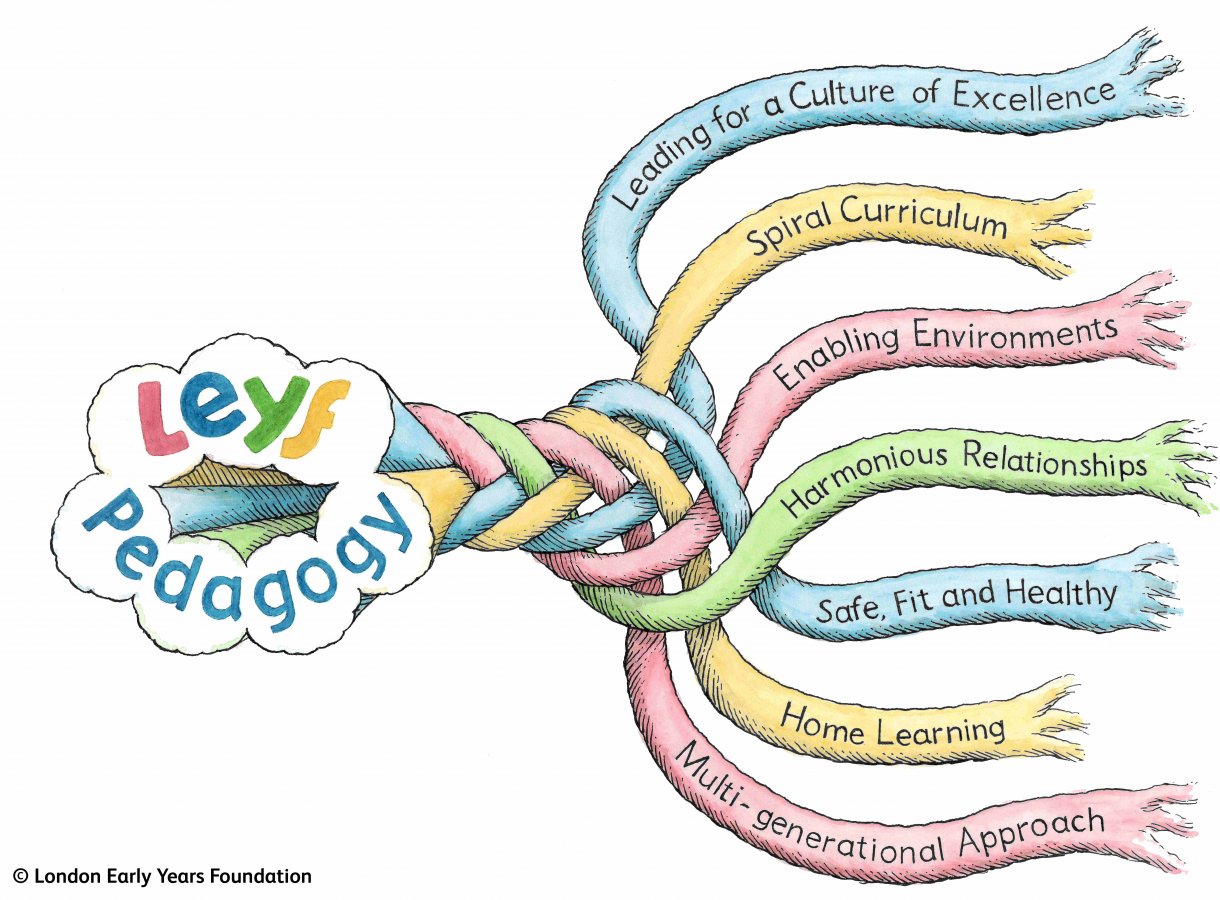
If Children Really Are Our Future, Why Are We Stalling?
The 16th November marked Social Enterprise Day, so Happy Social Enterprise to you all. My dream is for every business to operate like a social enterprise and never have to…
May 30th 2023

Thank you to those who came to the OBC on the 18th May. It was the ten-year anniversary of the #OBC and our first face to face meeting since Covid and the conversation was all the richer for being in person. However, it meant many of you missed out – we tried to live stream it, however following a self-reflective conversation with ourselves, we judged our recording efforts as inadequate. What was clear though is that if we are to maintain a professional and pragmatic relationship with our regulator, we need to continue to have conversations. There will be a poll at the end of this blog asking for your preferences for the autumn OBC
We invited three Ofsted inspectors; Wendy Ratcliff, HMI Principal Officer, Early Education, Jennifer Gee, Senior HMI, Early Years and Danny Lydon, Senior Officer, Early Years to the event and as ever there was so much to discuss that we ran over time! The meeting was informative and good-humoured but we did not shirk from raising some of the more contentious issues of fairness, consistency, safeguarding and best practice.
In my usual way, I set the scene by raising some of the key issues facing the sector. This included questions and comments sent to me in advance.
Staff recruitment/retention was first on the agenda and whether this was a factor in the decline of Outstanding judgments, and an increase in RI and Inadequate judgements – which was also confirmed by the local authorities. Ofsted shared statistics which aligned with this data (as show in the table below), as well as information about London inspections which was very useful. They also shared that London’s inspection grade profile overall is slightly better than the rest of the UK, but the level of those judged Outstanding was slightly lower.
| Time Period | Number of Inspections | Outstanding or Good Inspection Outcomes | RI or Inadequate Inspection Outcomes | Reasons for Inadequate |
| 1st Jan to 31st Dec 2022 | 1931 inspections | 85% judged Good or Outstanding | 242 judged RI or Inadequate | 46% safeguarding was ineffective |
This raised questions and the audience led a discussion about how to assess safeguarding sensibly. There were comments about settings being downgraded by inspectors who were testing staff as if it was a memory test requiring staff to recite the policy rather than understand that they were trying to develop a culture of safeguarding. Some of the audience felt the inspectors did not take into consideration the impact of trying to get agency staff familiar with the settings safeguarding policy on arrival at the setting and were downgraded because the agency staff was not confident. It led to an interesting discussion about the consistency of judgements, experience of inspectors given so many are new and the wide-ranging interpretation of the criteria in a way that balance being sensible and pragmatic while also being grounded in solid pedagogical knowledge. This was also raised as an issue regarding Outstanding judgements and examples were shared where inspectors were unwilling to give an outstanding because of one or two “missed opportunities” which on reflection did not detract from the overall experience but more a failure of a system that has replaced best fit with a more tick box approach which requires all the criteria to be ticked in both the good and outstanding categories.

The importance of raising the poor press recently received could not be ignored and we asked about this. We referenced the campaign EYA had begun to stop one word inspection judgements. I also referenced the Twitter campaign to replace Ofsted. I urged us to be careful what we wish for – a replacement of Ofsted could probably end up becoming a cross between the previous Local Authority model and Ofsted, neither of which are perfect and are expensive to establish. I was able to share the Nursery World Survey where it was evident that Ofsted needed to do more to make the sector feel reassured that the inspection process was constructive and inspectors were confident and knowledgeable about the art craft and science of Early Years so they could make confident decisions and their managers on whom they relied could support their rationale.

The Ofsted team presented slides and I have chosen to insert a few which I thought were very helpful. First up we were given an organogram of the London team. This was well received by the audience as was the news that Ofsted has recently employed two well respected Early Years colleagues; Dr Julian Grenier CBE and Mireille MacRailed HMI.

The audience asked questions about issues such as PSED and whether inspectors were looking only at PSED of children or staff. The Ofsted team said it was both the holistic experience of the children and the personal development experiences and opportunities of the staff. They also added that they would continue to focus on language and communication, and to note that they look at Storytime and how it is used in the setting as a proper experience, (not just sitting on the mat before lunch or during tidy up time) and the range of books available to the children. Inspectors would like to see a balance of activities and experiences where some a well-planned with a focus on introducing new skills and knowledge in order to extend children’s learning.

As ever some questions were more for the DfE than Ofsted. The issue of recruitment and retention was a case in point. There was lots of audience engagement on this shared problem. I shared the work of the Recruitment and Retention Task group and the key areas they are focusing on, all of which have both a positive and negative, aspect as I point out in my blog here
I shared the current conversations taking place with the DfE to explore the possibilities of some flexibility with regards to:
Finally, the audience asked the question as to inspecting the inspectors. The Ofsted team were keen to reiterate their efforts to train staff, and that training is one part of the support provided to inspectors. A member of the audience supported this saying she trained on the Ofsted inspectors programme and the training itself was of good quality, the question was whether the current means of checking if inspectors’ practice reflected the training, was the issue. The team agreed to think more deeply about the subject. They value feedback and this is feedback from the sector, but it did make us all reconsider our willingness to complete the post-inspection feedback form. Apparently, the completion rate is low, but Ofsted use them to learn about the inspection process. So, it is worth completing them. The rumbles about the Ofsted Complaints procedure remained and nothing Ofsted said could reassure the audience that addressing complaints without external representation is a good idea, not for Ofsted nor the sector. We hope the new Chief Inspector may be willing to address this!
One of the most effective ways of building harmonious relations while supporting learning is through pedagogical conversations. People like to talk, and a deep conversation is often the place where through positive interaction and shared understanding new thinking and understanding emerges and leaves both parties better informed. It also helps build mutual trust, respect. As Freire (1972) says the focus lies upon coming to some greater understanding rather than winning the argument. That was our experience, and I would urge colleagues to ensure you lead an OBC in each area, so we continue to build mutual trust and respect.
Next London OBC will be in the autumn. Do you want it face to face or online? Please let us know!


The 16th November marked Social Enterprise Day, so Happy Social Enterprise to you all. My dream is for every business to operate like a social enterprise and never have to…

In 2013, I set up the Ofsted Big Conversation #OBC because I was so dismayed at how our relationship had deteriorated with our regulator. I was beyond angry at what…

Last week I went on a Pedajolly to Birmingham to the Nursery World Conference with two colleagues. Ben who leads the LEYF Training Academy and Jean who manages a…